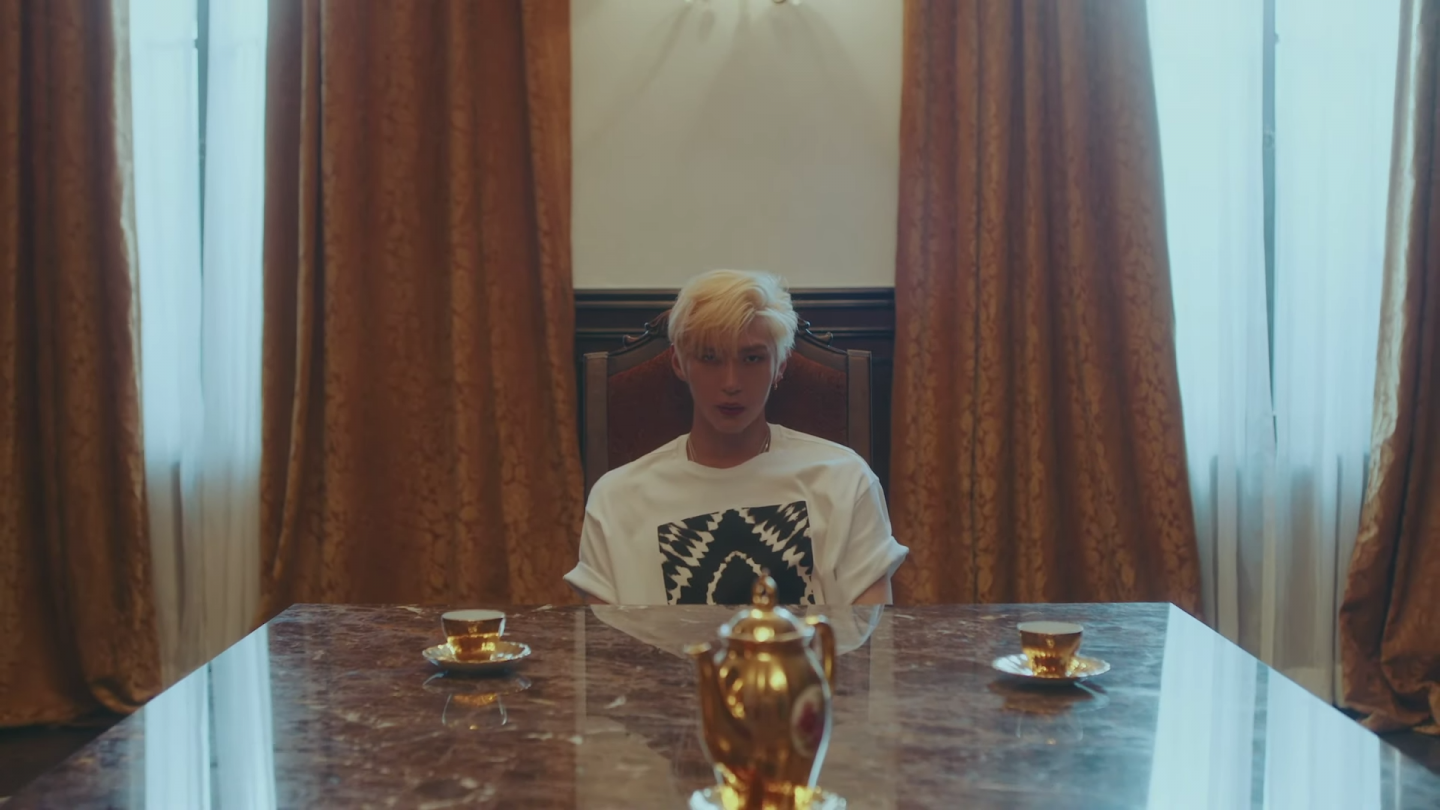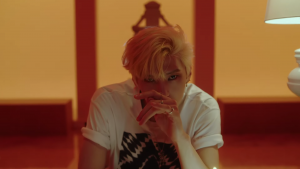
Continuing the smooth and sensual concept from his solo debut with “Touch & Sketch” last year, VIXX’s Leo has finally returned with his second mini album Muse, and its title song “Romanticism”. It’s been a busy few years for Leo, with his increased solo musical and concert endeavours as VIXX matured as a group.
Whereas “Touch & Sketch” was more upbeat, “Romanticism” strips away the more radio-friendly pop side, showing Leo’s confidence in the direction he is taking for his music and image. The MV reflects this sensual confidence through its simplicity, but this also means that nothing in the MV particularly stands out as memorable or exciting. The attempt at exploring both definitions of romanticism is a fresh one.
The song tries to explore romanticism both in terms of romance as we know it and in terms of the Romantic movement. For those who may be unfamiliar with it, the Romantic movement was an artistic period which valued beauty (especially the beauty of nature), as this inspired an emotional response in the artist or poet, which then led to imagination and the creation of art, with the aim of improving society — Romantic poets and artists often felt they had a moral obligation to better those less imaginative and creative than themselves. The album title Muse and the mention of a muse and the imagination in the lyrics of “Romanticism” show Leo’s interest in using the artistic movement to explore the experience of romance between two people. For example, the relationship between reality and imagination, with reality being secondary to the impact it has on inner emotions, is nicely (and quite smoothly, might I add) put here:
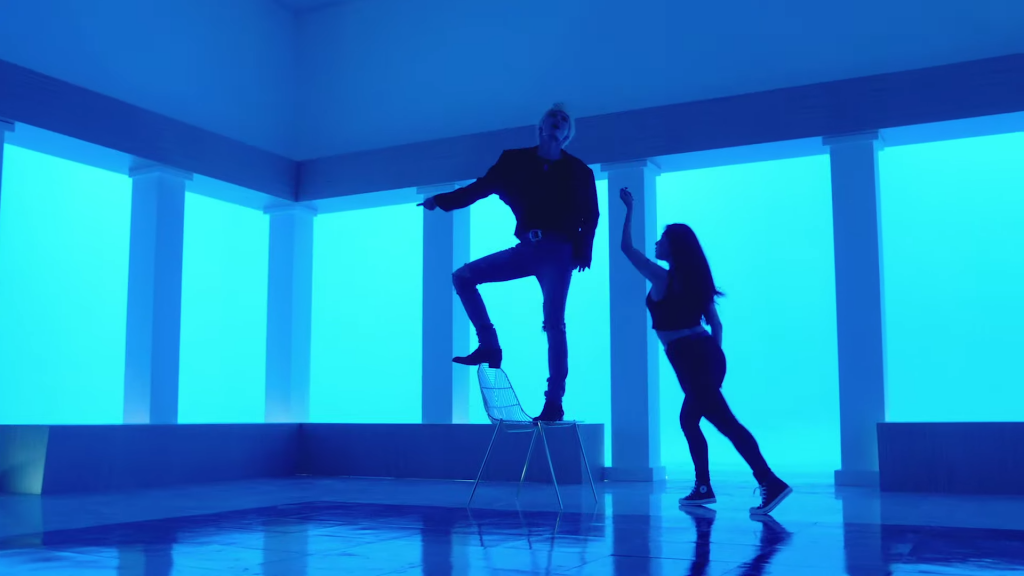
In my head, you’re already my lord
Reality is not enough
You’re my one
You’re my one
It certainly is an intriguing concept, but it could have been delved into a bit more to get the meaning across fully; the MV does even less to explore the idea.
Unlike most non-plot K-pop MVs, “Romanticism” doesn’t depend on an excessive use of different sets, camera angles and outfits. At first, this feels dull and slightly low-budget, but after a few watches, the simplicity can be somewhat refreshing. Most of the video moves slowly between shots of Leo sat at a table, or in the hallway of the same old-fashioned yet decorative house, and the dance shots, with Leo and the dancers being mostly silhouettes against blue lighting. The visual contrast in these shots is aesthetically pleasing — complementary colours of warm orange and cool blue, slow-motion solo shots and dynamic group dancing — but falls short in inspiring emotion. Perhaps this is because there is already some contrast within the shots themselves: Leo is sitting at a grand table wearing a printed white t-shirt looking completely at home is a great sight, but it softens the impact of the dance shots.
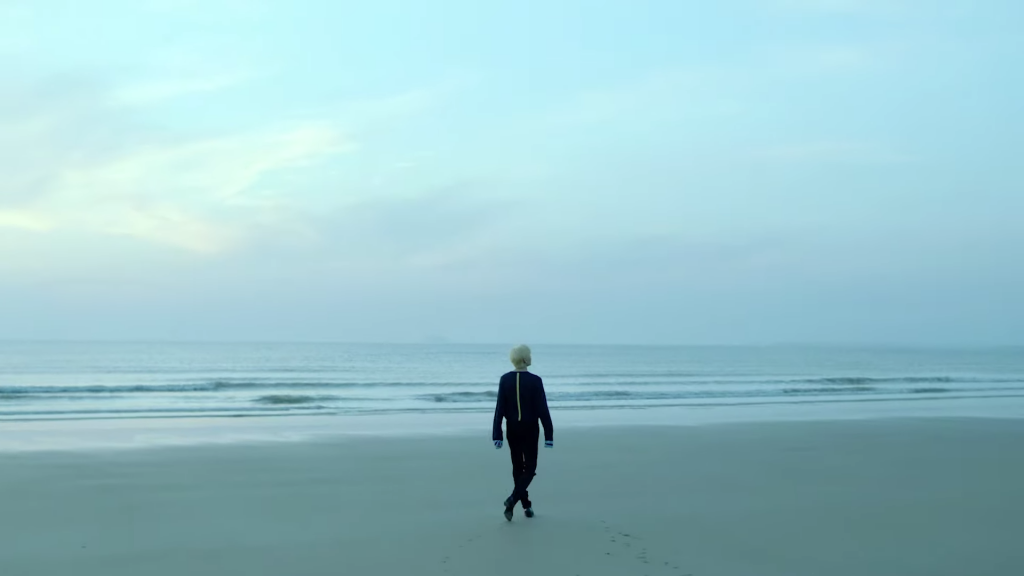
As the MV progresses, shots of Leo at a beach with cool blue tones are sprinkled in, as are warm-toned shots of him becoming physically closer to the girl. Solitude amongst nature is definitely a key image in the Romantic movement, and the growing intimacy with the girl represents the other, more commonly recognised definition of romanticism. I personally really liked how this was carried out: aside from the typical shyness (or in this case, coyness?) between the couple that is repeatedly done in K-pop MVs, the faceless and impersonal feeling to it in this MV, combined with the shots of Leo and the girl whispering something into one another’s ears, shuts the audience out of the picture, making it purely about them and their romanticism. At this moment, the MV becomes only about the relationship between the artist and his muse, and any external reality — even if that’s us, the viewer — becomes irrelevant.
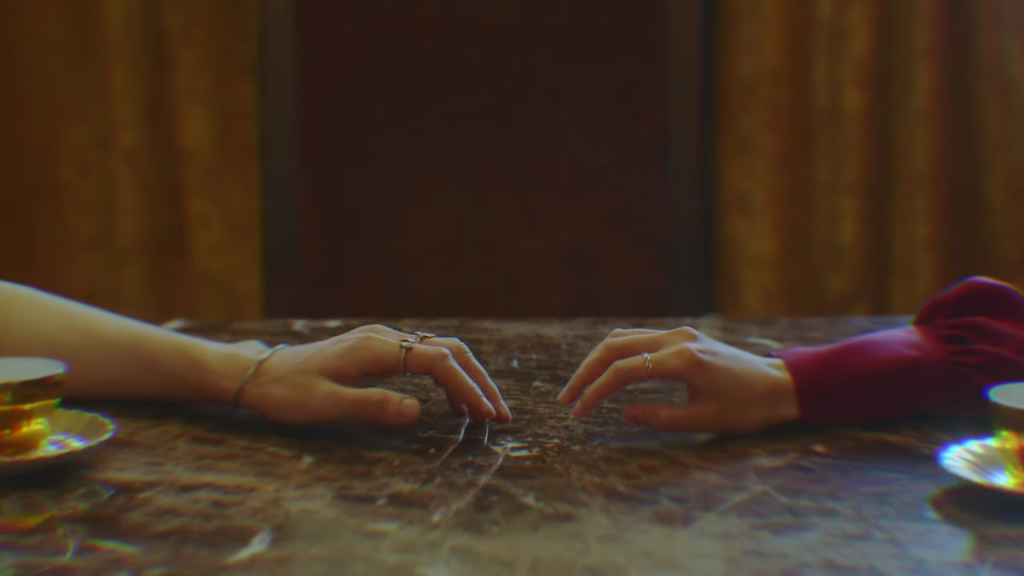
Yet these instances of the links between the meanings of romanticism are not as clear as they could have been. Rather than a scene at a flat beach, there could have been a shot of Leo in a more dramatic landscape, like on a cliff or amongst hills. And while the dance scenes are great fun to watch and are filmed in an aesthetically pleasing way, they add very little to the notions of romanticism, and the subtle contrast that they provide is unnecessary.
Overall, Leo’s “Romanticism” brings an original and creative idea to the table, and tries to explore it, but falls short of doing so in a way that is easily recognisable, or particularly inspiring.
(Youtube. Images via Jellyfish Entertainment, lyrics via Youtube.)
